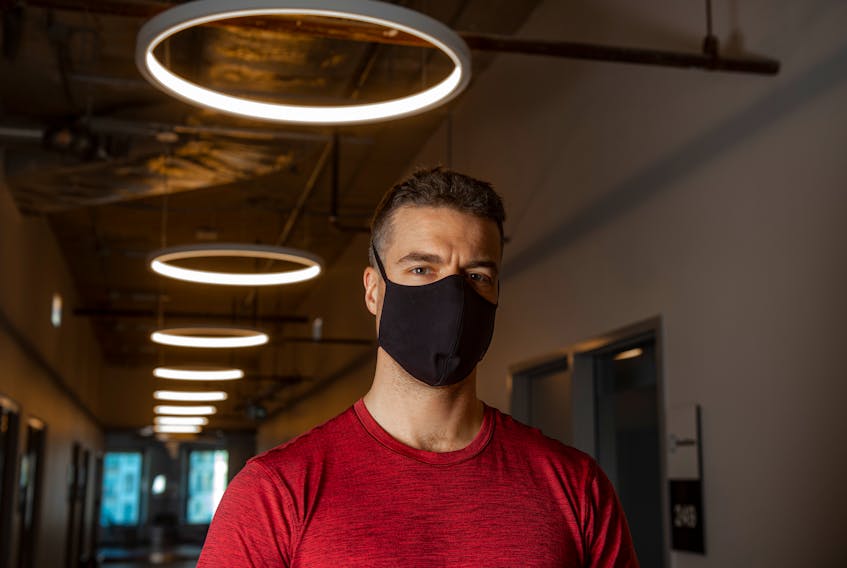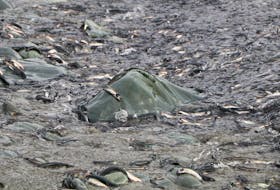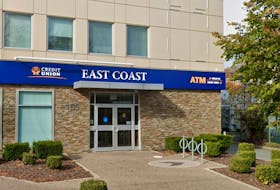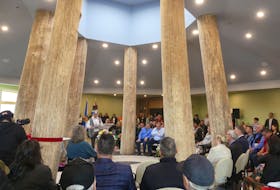No matter what your business is, having a waiting list of customers before you open the doors is a good start.
Shea Balish’s company Curv Health is practising what is sometimes referred to as lifestyle medicine, though he describes Curv as a digital clinic for delivering allied health-care services.
“Any of the health-care services that impact chronic conditions and your lifestyle,” said Balish during an interview in his downtown Halifax offices.
“A lot of people are trying to optimize around this, and what we do is bring in world-class registered health providers in those three buckets: physical therapy, registered dieticians and registered psychotherapists or clinical psychologists. And we put them in our software — and this is the important part — it’s not just a bunch of video calls; we’re very unimpressed with tele-health, generally. It’s great for convenience but that’s the only benefit. It doesn’t change the economics of care.”
Software Model
To deal with the issue of increasing health-care expenditures coming up with the same outcomes, Curv has developed a software model that exists in the space between pure human interaction and pure automation, allowing therapists to monitor clients remotely.
“What we do is take these practitioners and we put them into our system, which is a ‘human in the loop’ system,” Balish said.
“There’s this hybrid approach, where there’s this human using all the technology, they’re gathering data off you, but they’re still relying on their human knowledge, what they’re trained to do . . . to understand what they need to diagnose you with and how to motivate you.”
Balish describes himself as a rebellious person who wants to build things. That’s why the Lockeport native shrugged off a promising career in academia after earning a PhD at the age of 27, and a post-doctoral Banting fellowship at the University of Toronto.
“I have a lot of ideas and a love of science, and I wanted to have skin in the game rather than just have a bunch of publications,” he said.
“If you want to build and test and have original ideas and impact the world, academia is not one of the best places anymore.”
The software that is the basis of Curv’s digital clinic has been in development for two and a half years. A previous product has been licensed to a U.S. firm that uses the technology to work with pro athletes.
“That early-stage funding proved to our early investors that we can build things, that we can close big deals,” said Balish.
“That allowed us to go an early financing round, and the thesis of that round is betting on the team to go find a product market to fit.”

Funding
Curv is also funded by institutional and angel investors, including the former director of growth at Twitter, and got some cash by winning an NFL pitch competition.
Not all the fundraising efforts have been successful. Balish was making a pitch in Chicago when the guy on the other side of the table fell asleep. Undaunted, he made a deal at his next meeting.
Being associated with pro athletes or leagues grabs attention, but Balish said the emphasis is on the other side of the business that aims to change delivery of health care through digital coaching.
“We’re not focused on high-level athletes at all. When I talk about national-level athletes, we’re trying to get them to refer and endorse us to get us to the youth sport athletes,” said Balish, who expects to soon sign two of the country’s top five health insurers
“The insurance companies are very excited because if we’re saying we can deliver outcomes at less cost, they want to partner with us because they can save hundreds of millions of dollars. So, they bring us to their plan sponsors, the employers, and then they bring us to their employees and we deliver this care.
“On the athletic side, we partner with youth sport orgs. Where do parents go to get support services, if their kid needs to work with a mental health therapist or a sports psychologist? Or needs a dietician? We can go get the best practitioners and bring them in to work with, say, a young hockey athlete. And this physiotherapist, because they work with the junior national team or something, knows the real hockey injuries. They can deliver better care at a reduced cost.”
Hiring round
Curv has 13 employees split between Halifax and Toronto, plus contractors. The next round of hiring will be of engineers, “very likely” to be from Nova Scotia. Balish said revenue is “meaningful” right now, and he expects it to double over the next year.
Most importantly, the company has a growing wait list of clients.
“What we’re doing is slowly letting people into the platform as we ensure that we’re creating great value. As we’re scaling up, we will slowly let people in through the door rather than just blowing the doors off,” he said.
“The people on the wait list, we’re delivering care right now for free; we’re not asking them to pay for anything. We’re giving them care and just testing out to make the technology, not just foolproof, but just a great experience.”









